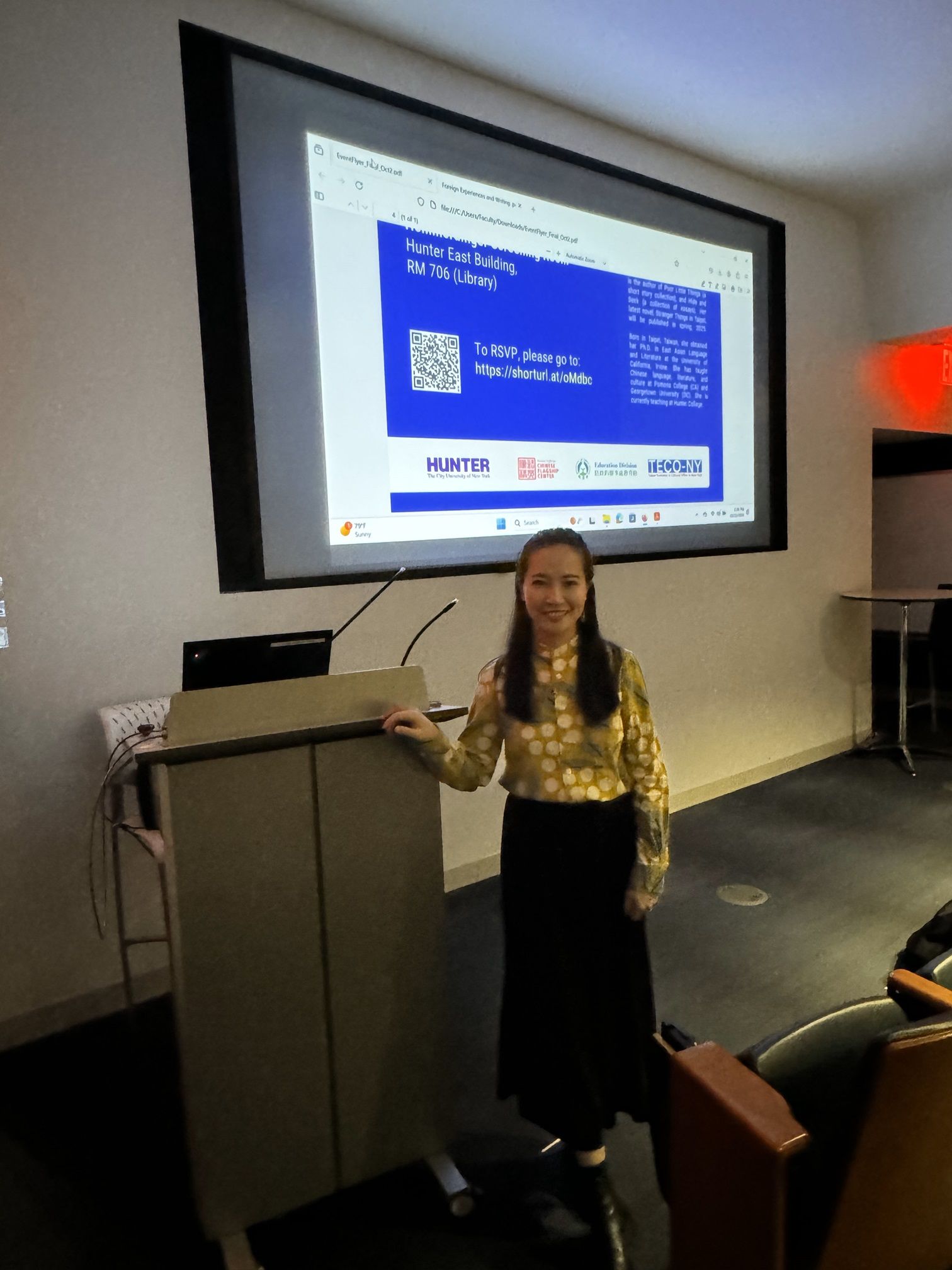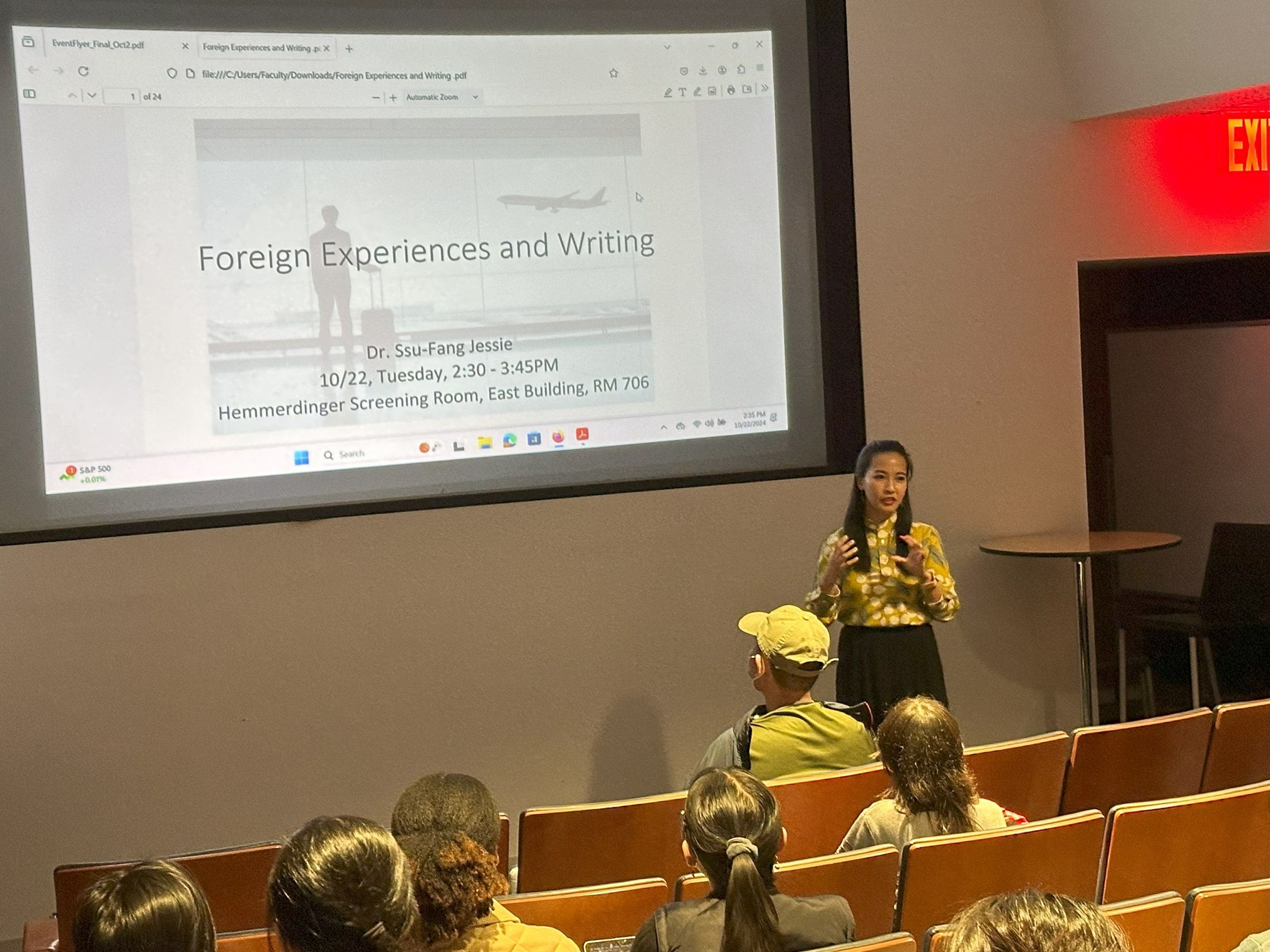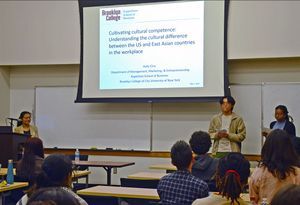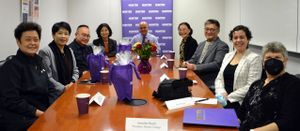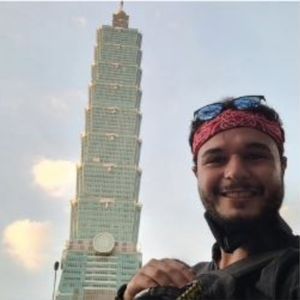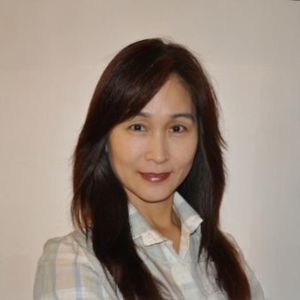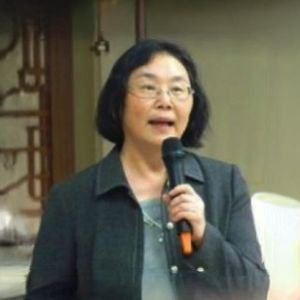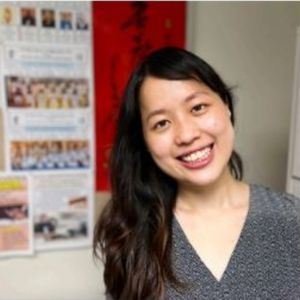Book Talk by Yang Shuang-Zi
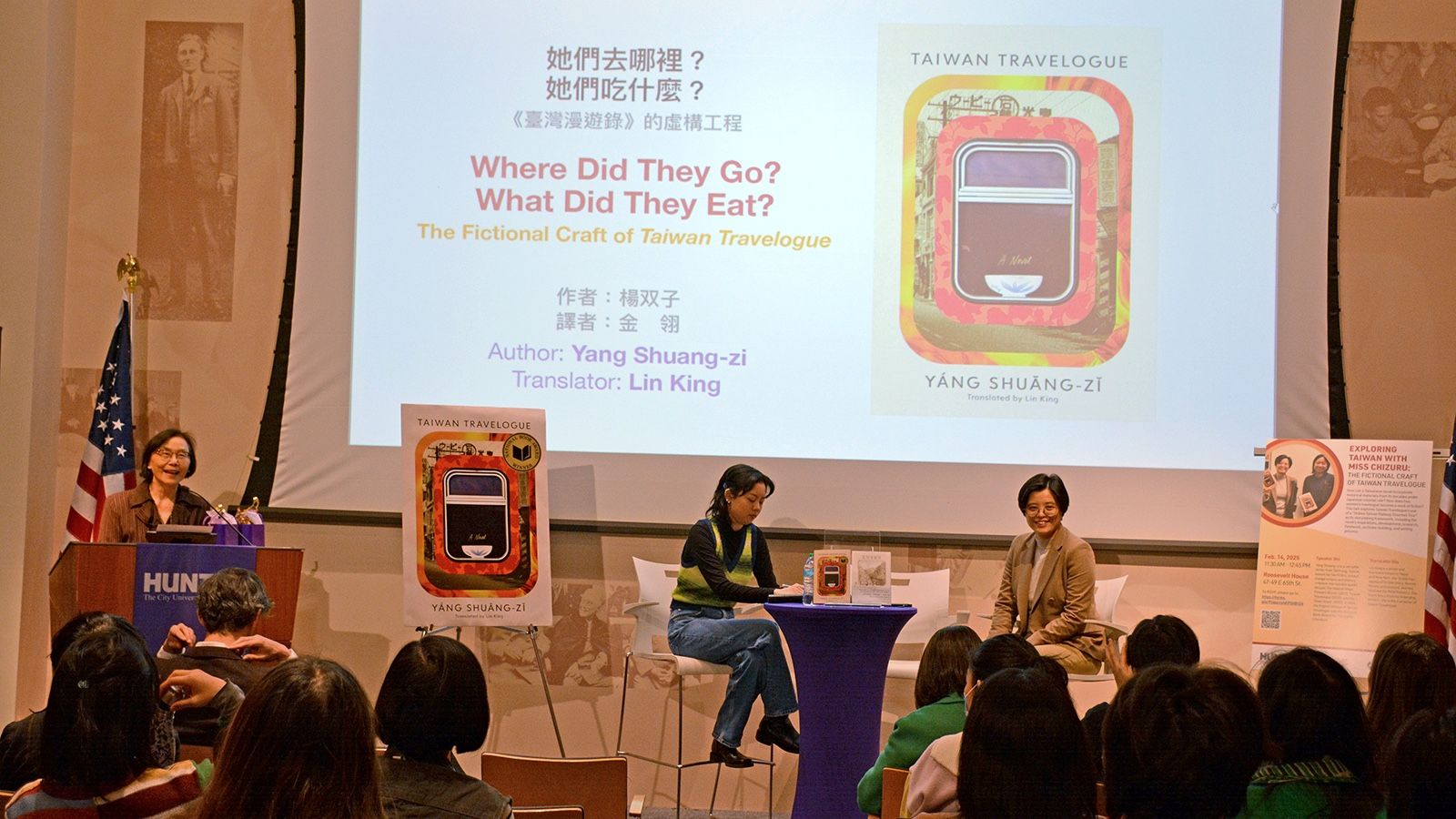
Seth Dowell - Student, Class of 2028
Friday the 14th, February, 2025
On a quiet Friday morning on New York’s Upper East Side, a Taiwanese author and her translator took to the stage at Hunter College’s Roosevelt House to deliver a talk on food, culture, and the unique heritage and history of Taiwan. Yang Shuang-zi, author of the book Taiwan Travelogue, and her translator Lin King explored Taiwan’s diverse culinary traditions, their deep historical connections, and the importance of understanding Taiwanese culture in a modern context.
The presentation opened with a brief speech by Dr. Der-Lin Chao, the director of the Hunter Chinese Program. Founded in 1966, the Hunter Chinese program was one of the very first professional Mandarin programs in America. While it has a long and distinguished history, its current impact is even more remarkable. Today, the Hunter Chinese program instructs over 500 undergraduate students in Chinese language and literature and also offers a Master’s program in teaching Chinese. In addition, Hunter is one of eight colleges in the country that hosts a Chinese Flagship Language Center, contributing to its significant role in Mandarin education.
After Dr. Chao briefly introduced Flagship, Professor Brian Skerratt then took the stage. A graduate of Harvard’s East Asian Studies PhD program, Dr. Skerratt provided a concise overview of Taiwan’s complex history. Colonized in succession by the Dutch, the Qing Dynasty, the Japanese, and the Nationalist Chinese, the small island off the coast of Fujian has experienced centuries of geopolitical shifts. Yet, despite its importance and occasional appearances in America’s news cycles, Taiwan’s culture is rarely explored in depth. This is precisely where Yang Shuang-zi and Lin King’s work becomes essential.
Listening to Shuang-zi and King discuss Taiwan Travelogue was a remarkable experience. Their passion for the subject was evident in every aspect of their presentation. Shuang-zi’s enthusiastic references of Taiwan’s food and trains as inspirations for the book’s story, their meticulous efforts to ensure historical accuracy, even the specific dishes they chose to highlight, were all lovingly discussed in the context of the book’s themes. Shuang-zi’s energy flows through her words in Mandarin, transcending the language barrier before reaching its full expression in Lin King’s translation. It was during their discussion that the true essence of Taiwan Travelogue is revealed.
Taiwan Travelogue can be described in many ways: it is part travelogue, part historical fiction, with a subtle thread of romance woven in to keep readers engaged. Above all, it is a love letter to the island’s cuisines, its flavors, and the culture that they represent and signify. From exhaustive descriptions of the preparation and flavor of Jute Soup, a traditional peasant dish from Taiwan’s Taichung region, to mouth-watering stories of sumptuous hot pot feasts, the entire book overflows with tender feeling. The book vividly transports its readers, immersing them in Taiwanese food and culture while leaving them yearning for more.
Written as a piece of historical meta-fiction (i.e. fiction presented as non-fiction), Taiwan Travelogue is exactly the kind of introduction many American readers need to truly encounter the varied history and rich culture of Taiwan. Whether you are a Hunter Mandarin student deeply interested in East Asian cultures, or a newcomer to the subject, the book offers something valuable to take away. As Lin King, translating for Yang Shuang-zi, stated at the conclusion of their talk, “We write about the past to move towards the future.” In the same way, we must read about the past to truly understand the future.


